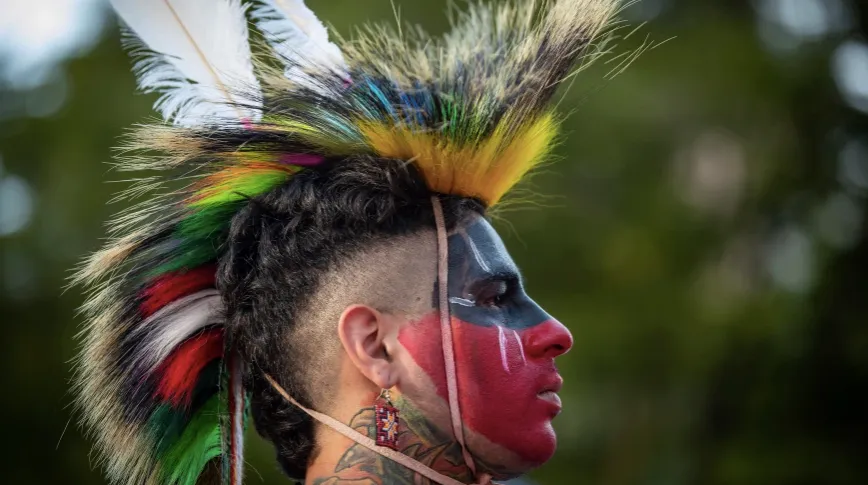
New York’s St. Regis Mohawk Tribe approves full legalization of cannabis
Picture above
The St. Regis Mohawk government in New York State didn’t just envision pharmacies on their acres when it approved a recent move to legalize a commercial cannabis industry on Monday.
The 14,000-member community seeks to establish itself as a “seed-to-sale” site, including marijuana farming on the tribe’s Canadian borderlands. Adults aged 21 and over are allowed to grow up to 12 plants at a time.
Despite being the first tribe in New York state to approve adult use of marijuana, the St. Regis Mohawk are not alone in their desire to get into the cannabis business. The Shinnecock Indian Nation has started work on a pharmacy and wellness center on the Montauk Highway in Southampton, Long Island, while the Oneida Indian Nation and Seneca Nation of Indians have historically expressed an interest in selling marijuana. Various Indian nations are already in the cannabis game, building and processing industrial hemp.
New York State legalized adult cannabis on March 31, but sales are not expected to happen until next year. Political scramble has further complicated the schedule, and given how much New Yorkers are looking to buy legal weed, those delays could prove frustrating for residents of the state.
So there is a possibility that indigenous communities – not bound by state laws – will be the first places to buy legal weed.
New York isn’t the only state whose Indian nations have taken the lead in marijuana sales. In Nevada, the Paiute Nation opened the state’s first consumer lounge and its largest pharmacy by the time Planet 13, the 115,000-square-foot pharmacy off the Strip, opened in 2020.
The Mohawk’s decision to legalize it was made in a community where at least four unauthorized cannabis companies are operating despite receiving cease and desist letters from the tribal government. The St. Regis Mohawk has taken a relatively lenient stance towards these unlicensed dispensaries, giving them the option to close and apply for a legal license until July 1.
The new regulation – first proposed in 2019 – introduces the Tribal Cannabis Exchange to oversee the fledgling industry and a system for cultivating, processing and selling cannabis. Since the new laws were announced on June 28, two dozen applicants have thrown their hats into the ring.
Rather than starting a tribe-owned cannabis business, the Mohawk want to empower individual entrepreneurs in their community.
“It would have been easier to follow the practice of other tribes and make this a tribal-owned business, but we have and will continue to support entrepreneurs in our community,” said Chief Michael Connors. “We have many tribal member entrepreneurs and would like to give them the opportunity to help develop this industry for the benefit of the community.”

Post a comment: